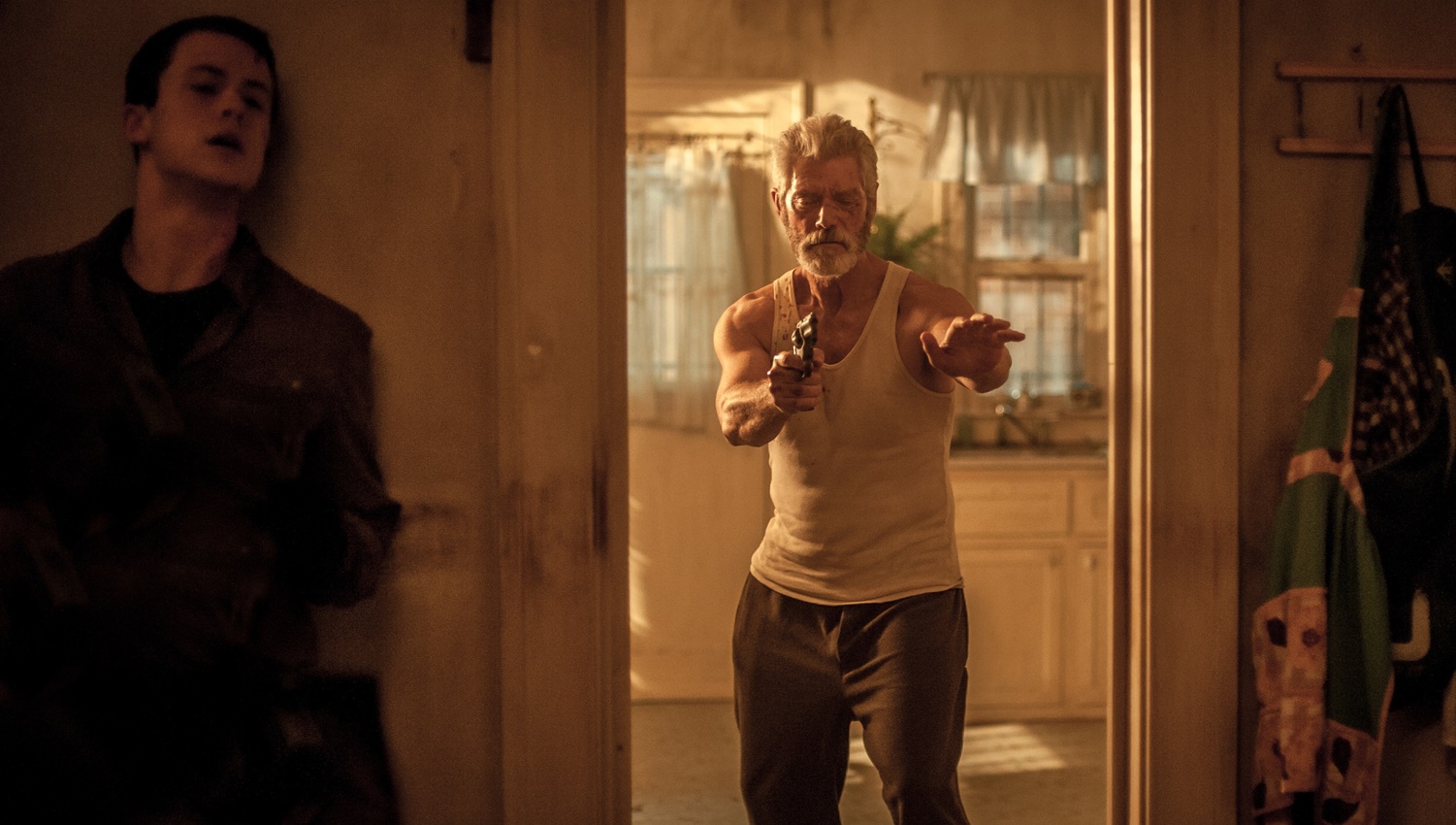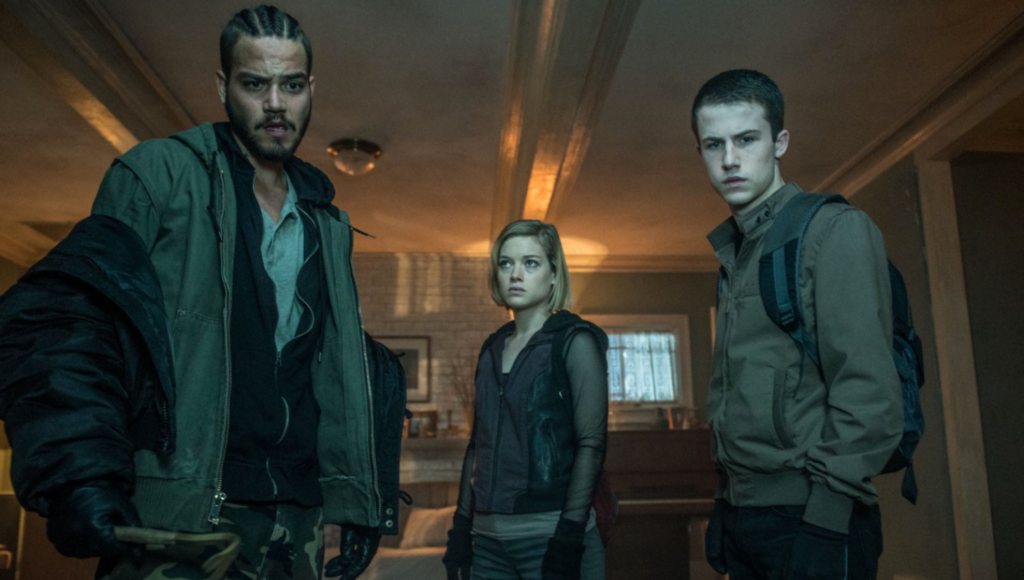“If we do this right, we never have to do it again,” famous last words uttered in too many thrillers. Don’t Breathe is the latest pocket thriller that thinks outside the box to chill the audience. Its concept of having young thieves break into a strong-powered, blind man’s house in an abandoned Detroit neighborhood has all sorts of chilling possibilities. Fede Alvarez’s script and direction are smart in some areas and confusing in others, but eons better than his Evil Dead remake. Not since David Fincher’s Panic Room (2002) has a film explored a house in such detail. Cinematographer Pedro Luque’s seems very aware of the master camera work in Fincher’s film, especially when we are first introduced to the house.
Desperate to start new lives, Rocky (Jane Levy), Alex (Dylan Minnette), and Money (Daniel Zovatto) are thieves who steal alarm codes to break into houses where they can nab expensive items and sell them. A retired ex-military man who lost his daughter in an accident and got a large settlement would be their first and last cash target. Alex, the brains of the operation, warns his eager friends to walk away from this one. Once they manage to get inside, the trio is unprepared for the strength of the blind man (Stephen Lang) and his aggression. There is much more to this house than they imagined, and getting in was much easier than getting out.
Organic suspense this partially intelligent thriller creates is tossed to the wind by the time we reach that final scene.
In some areas of the script, Don’t Breathe wants the audience to think smart. You have to put together why the thieves would smash a window, setting off the alarm after they entered so easily. Without explanation, you must also comprehend Alex’s father’s occupation. Yet in another scene, the camera foreshadows garden tools, glass on the floor, and a sleeping dog, too on the nose, diluting the surprise later. What’s worse is how, in one scene, Alex and Rocky find themselves locked in an upper-floor bedroom. The characters verbally explain, aided by camera shots, that both windows have bars. Yet, in the next scene, one of the characters flies out the window as if there are no bars.
The third act of this 88-minute film gets rather sticky, as the script saves the most diabolical twist for the very end. However, as the writers feel like they have pulled one over on the audience, they repeatedly go back for more and more. At about 71 minutes, Don’t Breathe could (and should) have ended on a breathtaking note with a B-. Unfortunately, the dead keep coming back to life, the endings become never-ending, and Don’t Breathe makes the irrevocable mistake of backing characters into such tight corners that only the absurd and nonsensical can free them. What organic suspense this partially intelligent thriller creates is tossed to the wind by the time we reach that final scene.
Final Thought
Avoids clichés as long as it can before falling head first into genre stereotypes.


